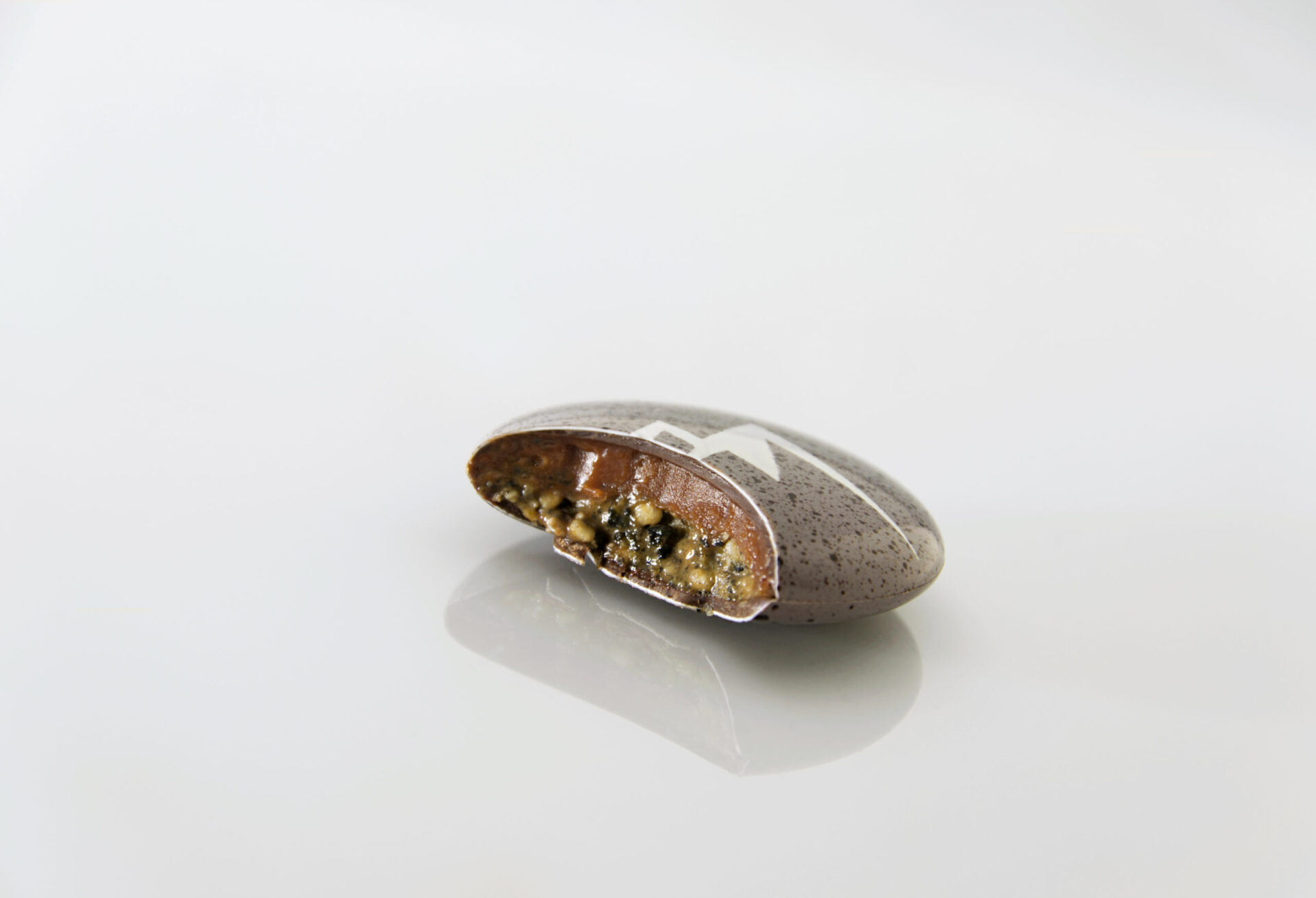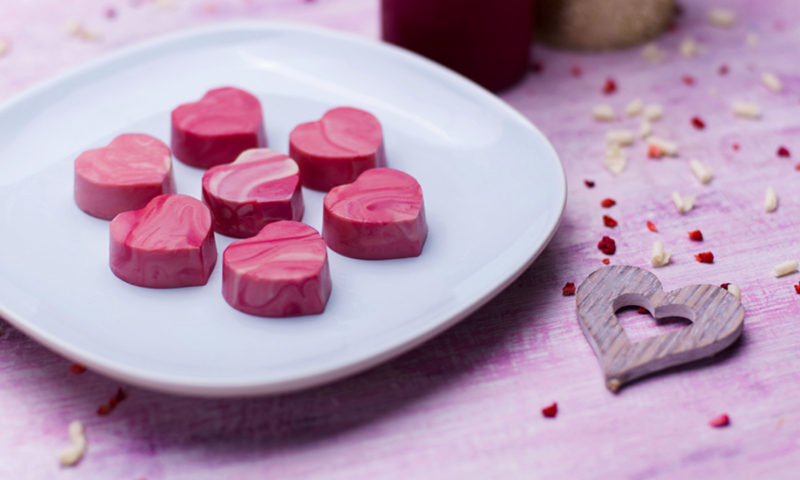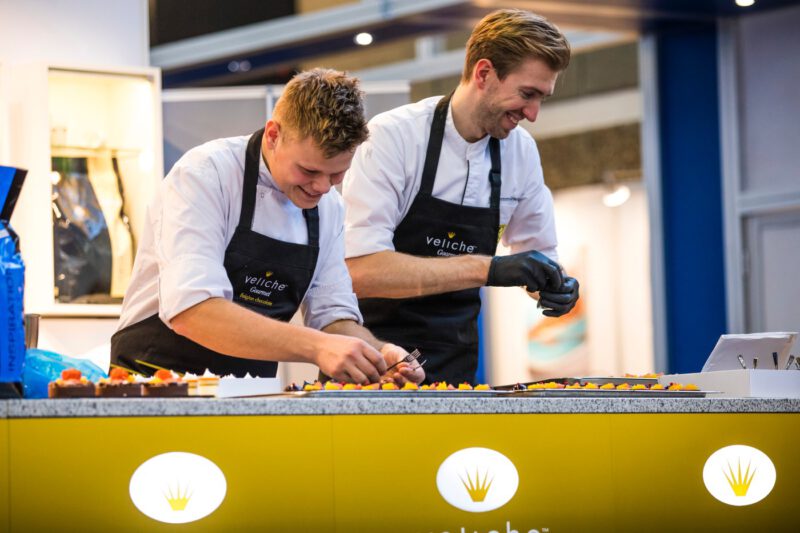David redon wins the 3rd place of the Belgium chocolate awards

story by Veliche™ Gourmet
This year the Belgium Chocolate awards were devoted to the theme of Japan and sport with the Tokyo Olympic Games as inspiration!
This contest targeted both amateurs and professionals and showcased the expertise of the chocolatier. The challenge: to make the very best chocolate sweet or bar of chocolate. An ambitious programme!
It gave us a great thrill to interview one of the main winners, David Redon, who took third prize in the professional category of the Belgium Chocolate awards for his chocolate sweet entitled “KOISHI”.
The set theme was the Olympic Games, what did you draw inspiration from?
I was inspired by one of my passions, cross-country mountain biking. So I was delighted to be able to combine two activities that are very close to my heart: patisserie and sport. The topic really attracted me right away and the idea came to me very naturally.
What taste sensations were you trying to replicate in your creation for the Belgium Chocolate awards ?
I wanted to achieve a chocolate with gourmet flavours, simple and clear, that reflect the Asian taste culture. So I decided to include some ginger, a root that is used very often in the cuisine, with a spicy and fruity character that I accentuated with a little orange, combined with a crunchy sesame praline, into which I incorporated some broken pieces of nougat with toasted black sesame seasoned with fleur de sel. I wanted each of the flavours to be released as it was being tasted.
What does KOISHI mean?
It means a little stone or pebble in Japanese. A way of tipping the hat to Mont Fuji, and to cross-country mountain biking
What made you choose OKAPI 65,- the Signature Origin Veliche™ chocolate from the Democratic Republic of the Congo? What does that bring to your creation ?
For the Belgium Chocolate awards, I didn’t want to work with a basic
chocolate that would only have brought a chocolatey note. I wanted my
covering to bring some character to tasting my chocolate sweet, even if
that remains the least dominant part.
It’s the combination of it all that produces the harmony, so each step
counts and the qualitative selection of the products is important.
Thus I decided to work with OKAPI 65. Primarily because it’s a label of origin chocolate, completely new on the market and hence very interesting for creating a surprise. And secondly for its aromatic profile that was very compatible with my choices, such as the slight bitterness, and its profile notes of orange and pepper. Finally, I turned to OKAPI 65 for its ease of use due to its technical properties, like its fluidity for moulding my shell for example.
How did you work on the KOISHI balance?
I wanted a chocolate that was only slightly sweet, gourmand, with a nice dynamic on the palate that combines freshness and pep. From that starting point, I worked on adjusting my flavours to achieve a good balance between the different sensations when tasting. In this way I created a chocolate that is simultaneously harmonious and dynamic in the mouth, revealing its flavours in a gradual way.
Why have you gone to a VEGAN chocolate?
At home, and thanks to the influence of my partner, we are paying more attention to the welfare of animals and to the consumption of healthy food from plant sources. I wanted to make a chocolate that could become part of this way of alternative consumption and can be described as vegan, vegetarian or flexitarian and which responds to an increasing market demand. It was a real challenge for me and I’d like to continue to offer this type of creation in the future.
Did you have several creative pathways? If yes, what were they?
No, the idea came to me very quickly and I knew what I wanted
to do in a very spontaneous way. So I had the form and message, most of
the work was in the tasting and required most research. I also presented
each chocolate in a transparent box with a design linked to my choices.
In these uncertain times, I wanted to be sure that my chocolate
complied with all the health measures and that the jury would run no
risk.
Can you tell us how the contest was conducted?
First you have to register and give a written description of your creation with supporting photos. In my case, I sent different views including a cross-section view to show the inside of the sweet and also to show the different steps in the creation.
Then the chocolate had to be brought to the Jury on a specific date so it could be tasted and marked. Unfortunately, because of COVID measures, a lot of things had to be done at a social distance such as the awards ceremony, but none of that takes away from the fact that this competition remains a very interesting and enriching experience.
Thanks very much David!
And to discover even more of David Redon’s creation, go to the “Inspiration” tab of our website!


